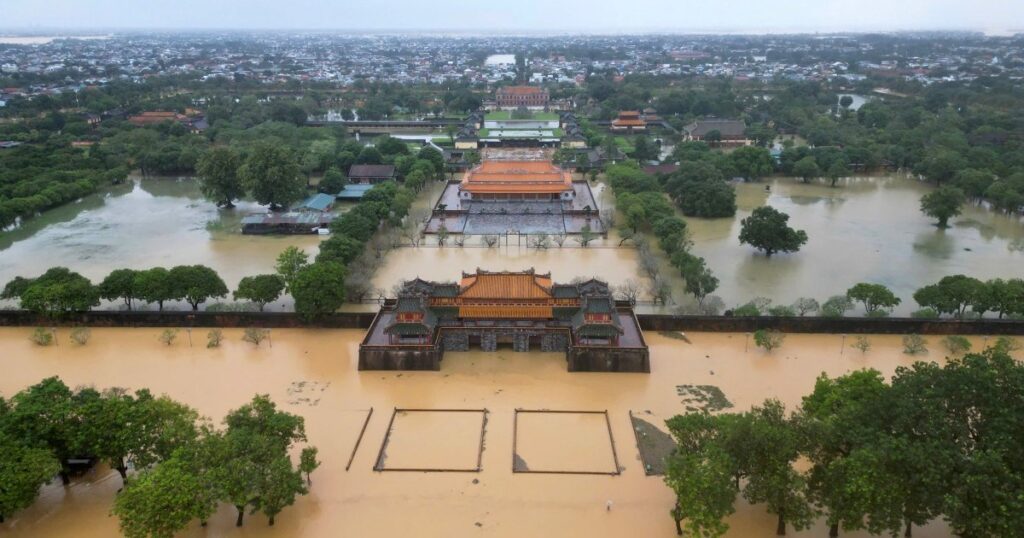Vietnam’s weather agency has recorded its highest level of rainfall for a 24-hour period in the historic city of Hue.
Published On 28 Oct 2025
Heavy rains have triggered record-breaking floods in some parts of central Vietnam, especially in top tourism destinations Hue, a former imperial capital, and the ancient town of Hoi An.
On Tuesday, Vietnam’s disaster management agency recorded more than 1,000 millimetres (39.4 inches) of rainfall over a 24-hour period ending late on Monday in parts of Hue and Hoi An.
Recommended Stories
list of 3 itemsend of list
Vietnam’s National Center for Hydro-Meteorological Forecasting said the volume of rainfall in Hue marked the highest ever for a 24-hour period since the country started its record-keeping.
The newspaper VNExpress reported that water levels in the Huong and Bo rivers, which flow through Hue, reached 5.25m (17.2 ft) on Monday afternoon, shattering the previous historical high recorded in 2020.
As of Tuesday morning, water levels from both rivers have receded, but Hue remains submerged by more than one metre (3.3ft) of water.
Images showed a wide area of the ancient city, including the palace grounds, under murky waters.
Authorities in Hue were quoted by the state news agency Vietnam News as saying that the rain and flooding may last until Friday.
The area was designated a world heritage site in 1993 by the United Nations Educational, Scientific and Cultural Organization (UNESCO).

The heavy rain also triggered a massive landslide of red mud on Tuesday morning about 3km (1.9 miles) long in coastal Quang Ngai province, leaving about 1,700 people isolated, authorities said.
As of Tuesday, more than 8,600 people in four central provinces were evacuated due to risks from severe flooding and landslides.
Heavy flooding has also forced the state-run Vietnam Railways Corp to suspend services between the capital Hanoi and the business hub Ho Chi Minh City.
The government said in a separate report that more than 306,000 households and businesses in Hue, Danang and Quang Tri provinces were suffering from blackouts.
Scientists warn that storms are becoming increasingly powerful as the planet warms due to human-induced climate change.
This month’s rainfall comes after Typhoon Bualoi battered the country in September, leaving at least 13 people dead and 20 others missing.
According to the General Statistics Office, natural disasters — mostly storms, floods and landslides — left 187 people dead or missing in the country in the first nine months of 2025, with total economic losses estimated at more than $610m.

